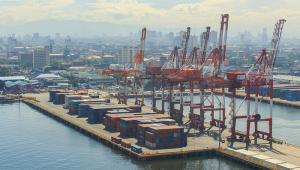To “unlock Italy’s potential” the country needed to boost productivity, improve public administration and reform fiscal policy, a 2018 IMF review of Italy has said.
The report, published on Wednesday, comes less than a week after the national statistics office said the country fell into recession at the end of last year.
“The authorities’ strategy falls short of comprehensive reforms needed to address the longstanding structural impediments to sustained growth, and, therefore, risks leaving the economy vulnerable,” the IMF review said.
The organisation called for the reforms to be a priority for the Italian government.
The Italian populist government, which took office in the summer, said it would implement an expensive programme that includes income support for the poor, a lower retirement age and tax cuts.
Italian finance minister Giovanni Tria said the IMF’s findings “underestimates the necessity to support growth in Italy and in Europe, and the role of the policies adopted by the government towards this goal.”
He said in a statement that the government is committed to reducing debt.
The country’s coalition government was forced to revise its 2019 budget at the end of 2018 after the European Commission raised concerns about the impact on the country’s debt levels – the biggest in the EU at more than €2.3trn.
The coalition expects a 1% growth rate this year while the Italian central bank and the IMF have both estimated 0.6% for 2019. The IMF projected growth below 1% in 2020 and beyond.
Lower growth will make it harder for the government to reach the budget deficit target of 2.04% of GDP for 2019, agreed with the European Commission.
The IMF said the Italian economy had been “recovering modestly” after the financial and sovereign debt crises.
But it added that Italy’s “longstanding weaknesses” had contributed to the “challenging economic situation”, including the sluggish growth, unemployment and high debt.







